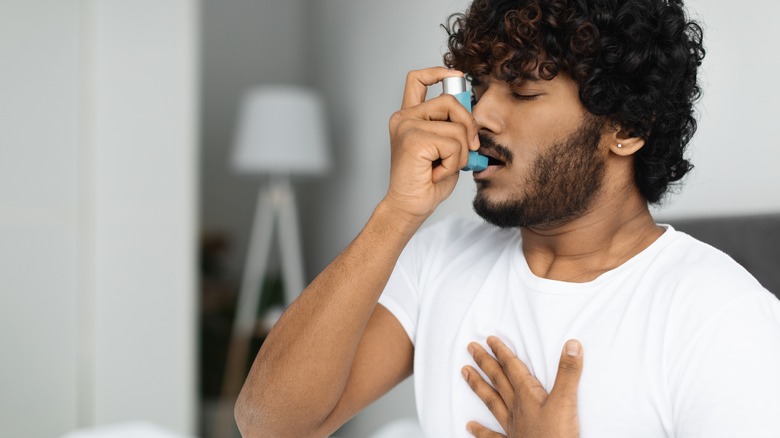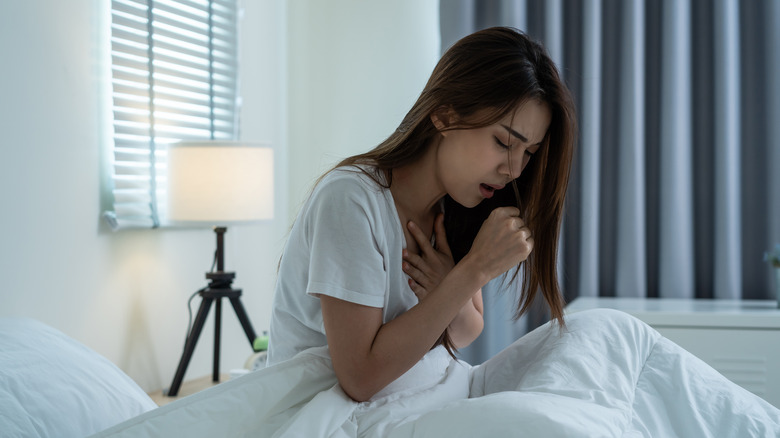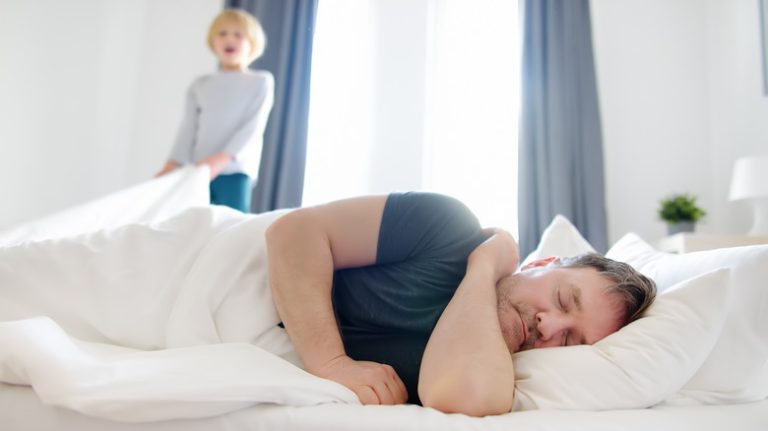According to the American Lung Association, coughing is a natural reflex that helps to keep our respiratory system healthy by clearing irritants and secretions from our airways. While daytime coughing is not uncommon, many people find that their coughing intensifies when the sun goes down. Coughing during the day can be caused by infections, allergies, pollutants, or other irritants while coughing at night can be more complicated. To improve respiratory health and sleep quality, it’s crucial to identify the underlying causes of nighttime coughing.
Postnasal drip is one of the most common causes of nighttime coughing. Other causes may include gastroesophageal reflux disease (GERD) or asthma. In addition to these medical conditions, a nighttime cough can be a side effect of certain medications. Your sleeping position or pillow and sleeping environment can also worsen nighttime coughing. By addressing the different causes of nighttime coughing, you can achieve a more restful and peaceful night’s sleep and maintain good respiratory health.
Postnasal drip is a nocturnal culprit of coughing

Postnasal drip occurs when excess mucus accumulates in the back of the throat; and allergies, respiratory infections, or sinus issues can trigger it. During the day, we naturally clear mucus from our throats by swallowing. However, at night, this process becomes less efficient.
A few factors contribute to postnasal drip-induced coughing at night. When we lie down to sleep, the position of our body changes, which alters the dynamics of mucus drainage. This can lead to mucus pooling in the back of the throat, causing irritation and a persistent cough. Additionally, since we are in a state of rest, our swallowing activity reduces, which increases the likelihood of mucus accumulation in the throat, triggering a cough reflex.
Some simple solutions can help you improve your quality of sleep. Try sleeping with your upper body elevated, using a humidifier to add moisture to the air, or taking an antihistamine or decongestant (per Harvard Medical School).
GERD is connected to nighttime coughing

Nighttime coughing due to reflux can be quite a surprise and can profoundly impact your sleep. Unlike the more familiar heartburn symptoms associated with GERD, nighttime coughing often operates in the shadows, catching many sufferers unaware.
Several factors contribute to the prominence of nighttime coughing in GERD, such as lying flat, which exacerbates the flow of stomach acid into the esophagus, making nighttime coughing more likely (via Healthline). Tiny amounts of stomach acid may be inhaled into the airways during sleep, provoking irritation and coughing (via UT Southwestern Medical Center).
If you suspect that silent acid reflux may be causing your nighttime coughing, you can visit a healthcare professional to confirm the diagnosis. They may employ diagnostic tests, such as upper endoscopy or esophageal pH monitoring, and recommend treatment options, including lifestyle changes, dietary modifications, and medication to alleviate symptoms and restore peaceful nights without GERD-induced coughing disruptions.
Asthma is a nighttime catalyst for coughing

Prostock-studio/Shutterstock
Nighttime coughing can be caused by asthma. While asthma attacks can happen at any time, some people experience nocturnal asthma, a specific type of asthma that predominantly occurs at night and often presents with worsening coughing, wheezing, and shortness of breath during sleep. This may happen because our respiratory system, including our airways, follows a natural circadian rhythm. As night falls and the body enters a state of rest, lung function tends to decline, making individuals more susceptible to asthma symptoms such as coughing (per Harvard Medical School). According to a 2024 study published in the Journal of Applied Physiology, lying on your back can also change the airflow dynamics in the airways, increasing airway resistance and potentially triggering coughing in individuals with asthma.
If you suspect asthma-related coughing, it’s important to consult with a healthcare professional for a proper diagnosis. Effective management strategies, including inhalers and lifestyle modifications, can help control symptoms and minimize nighttime coughing episodes.
Medications can instigate nocturnal coughing

fizkes/Shutterstock
Even though medications are meant to help us feel better, some can paradoxically lead to the onset or worsening of coughing, particularly at night. For example, angiotensin-converting enzyme (ACE) inhibitors, commonly used to treat hypertension and heart conditions, can cause a persistent dry cough that can be especially bothersome and uncomfortable at night. Non-steroidal anti-inflammatory drugs (NSAIDs), used to combat pain and inflammation, can induce or worsen preexisting cough symptoms, especially in those with underlying respiratory conditions. Beta-blockers, which are commonly employed to manage high blood pressure and heart rhythm irregularities, may trigger a dry, irritating cough, particularly when taken at night. Even aspirin can contribute to developing a persistent night-time cough.
If you suspect that your nighttime coughing may be caused by a medication you are taking, your healthcare provider can explore alternatives, such as taking medications earlier in the day, which can also help minimize nocturnal coughing episodes.
Other triggers that can cause nighttime coughing

Antonioguillem/Getty Images
Nighttime coughing can have unexpected sources, such as environmental factors, sleeping positions, and even your pillow’s softness. These factors may not be the primary cause, but they can trigger or worsen coughing episodes at night. Triggers of indoor allergies — like pollen, dust mites, and pet dander — can irritate your airways and cause coughing during sleep (per Penn Medicine Becker ENT & Allergy). Poor air circulation or inadequate cleaning can make these allergens accumulate in your bedroom, making it crucial to maintain a clean and allergen-free sleeping environment.
Your sleeping position can also contribute to nighttime coughing. Lying on your back or side or having a pillow that is too soft can allow mucus to build up, resulting in coughing (via Healthline). Sleeping on your side or with your upper body elevated can minimize this risk. Using multiple pillows or a wedge pillow for better neck support can also help alleviate this issue and reduce the likelihood of coughing during the night (per Harvard Medical School).




